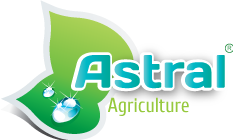NonStop

Description
NonStop is the name for a new non-acidic chemical technology that arrests troublesome phosphate reactions and generally increases the efficiency of hydroponics/fertigation systems.
Normally phosphates will react with calcium (and other substances) to form insoluble compounds. For the modern Grower, these often lead to problematic scale formation and in turn, dripper blockages, plant mortality and expensive maintenance bills.
The chemistry
Fertigation and hydroponics feed solutions by definition contain calcium (Ca2+) and magnesium (Mg2+) ions together with phosphate (eg HPO4 2-) and sulphate (SO4 2-) ions. If the source water is hard and of poor quality the solution will also contain bicarbonate (HCO3-) ions and the pH will tend to be higher. All these components have a tendency to react as follows:
- Calcium + phosphate → calcium phosphate (CaHPO4)
- Calcium + bicarbonate → calcium carbonate (CaCO3)
- Magnesium + phosphate → magnesium phosphate (MgHPO4)
- Iron + phosphate → iron phosphate (FePO4)
- Calcium + sulphate → calcium sulphate (CaSO4)
In every case the result of the reaction is the production of an insoluble precipitate which is responsible for scaling and all the associated problems. Undoubtedly the calcium/phosphate reaction is the most serious hence the traditional “A” and “B” tank system to keep the concentrated reactants apart and reduce the problem. However the reactions do occur in the diluted feed solution and are relentless. Key influential factors include:
- pH above 7.5 (normally controlled by acidification)
- Calcium content > 60 ppm
- Magnesium content > 30 ppm
- Bicarbonate content > 150 ppm
Non-Stop Technology
NonStop is a new proprietary chemistry incorporated into Solufeed water soluble fertilisers. Not a separate product but built into every relevant formulation. NonStop essentially modifies the chemical properties of feed solutions so that phosphate reactivity is reduced and formation of insoluble precipitates are discouraged.
- Significantly reduces scale formation.
- Helps prevent dripper blockages.
- Prevents loss of plants due to water starvation.
- Reduces scaling of other fertigation hardware.
- Increases the reliability of hydroponics/fertigation systems.
- Reduces maintenance operations and dripper replacement.
- Avoids wasting valuable nutrients.
- Saves money.
